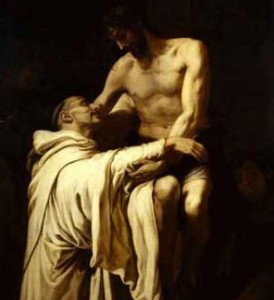At Nazareth Our very first thoughts must be turned toward Mary Most Holy, to offer her the tribute of Our devotion and to nourish that devotion with reflections that will make it genuine, profound and unique, in conformity with the plan of God. It is Mary who is full of grace, who is the Immaculate, the ever-virgin, the Mother of Christ and hence God’s Mother and ours, she who was assumed into heaven, our most blessed Queen, the model for the Church and our hope.
Before all else We offer Our humble filial promise to venerate her with that special devotion which recognizes the wonders God has accomplished in her; with singular homage manifesting the most holy, pure affectionate, personal and confident movements of Our Heart; with such devotion as causes her encouraging example of human perfection to shine upon the world from on high.
Then We present to her Our requests for what is closest to Our heart, because We wish to honor both her goodness and the power of her love and intercession. We pray that she may preserve in our hearts a sincere devotion to her. We beg her to give us understanding, desire, and then the peace of possessing purity of body and soul, purity in thought and word, art and love; the purity that the world of today attempts to shock and violate; the purity to which Christ has linked one of His promises, one of His beatitudes, that of penetrating into the vision of God Himself.
We ask therefore the favor of joining Our Lady, mother of the home at Nazareth, and her humble but courageous husband St. Joseph, in their intimacy with Jesus Christ, her human and divine Son.
Nazareth – school of the Gospel
Nazareth is the school in which we begin to understand the life of Jesus. It is the school of the Gospel. Here we learn to observe, to listen, to meditate, and to penetrate the profound and mysterious meaning of that simple, humble, and lovely manifestation of the Son of God. And perhaps we learn almost imperceptibly to imitate Him. Here we learn the method by which we can come to understand Christ. Here we discover the need to observe the milieu of His sojourn among us – places, period of time, customs, language, religious practices, all of which Jesus used to reveal Himself to the world. Here everything speaks to us; everything has meaning. Everything possesses twofold significance.
“The letter” …
The first is exterior, that which the spectators’ senses and perceptiveness can immediately derive from the Gospel scene. It is the impression gained by those who look merely at externals, who study and examine only the philological and historical trappings of the holy books, that part of which in Biblical terminology is called “the letter.” This study is important and necessary, but it is opaque to one who stops there, and even capable of engendering illusions and intellectual pride in the observer who approaches the external elements in the Gospel without clear vision, humility, a good intention, and a prayerful spirit.
… and “the spirit”
There is also an interior significance – that is, the revelation of divine truth, of supernatural reality – which the Gospel not only contains but also manifests, though, to be sure, only to the person who puts himself in harmony with its light. This harmony is due partly to uprightness of spirit, that is of mind and heart – a subjective and human condition which depends on the personal initiative of each person. At the same time it flows from the mysterious, free, and unmerited outpouring of grace, which, in keeping with the mystery of mercy governing mankind’s destiny, is never lacking; indeed, at the proper time and in the appropriate manner it never fails any man of good will. This second element, distinct from “the letter” of the Gospel, is called the “the spirit.”
It is here, in this school, that one comes to grasp how necessary it is to be spiritually disciplined, if one wishes to follow the teachings of the Gospel and to become a follower of Christ. Oh, how We would like to repeat, so close to Mary, Our introduction to the genuine knowledge of the meaning of life, and to the higher wisdom of divine truth!
But Our steps here are hurried, and We must take leave of Our desire to pursue here this never-ending education in understanding of the Gospel. Nevertheless, We cannot depart without recalling briefly and fleetingly some fragments of the lesson of Nazareth.
The lesson of silence…
The lesson of silence: may there return to us an appreciation of this stupendous and indispensable spiritual condition, deafened as we are by so much tumult, so much noise, so many voices of our chaotic and frenzied modern life. O silence of Nazareth, teach us recollection, reflection, and eagerness to heed the good inspirations and words of true teachers; teach us the need and value of preparation, of study, of meditation, of interior life, of secret prayer seen by God alone.
… of domestic life
The lesson of domestic life: may Nazareth teach us the meaning of family life, its harmony of love, its simplicity and austere beauty, its sacred and inviolable character; may it teach is how sweet and irreplaceable is its training, how fundamental and incomparable its role on the social plane.
… of work
The lesson of work: O Nazareth, home of “the carpenter’s son,” We want here to understand and to praise the austere and redeeming law of human labor, here to restore the consciousness of the dignity of labor, here to recall that work cannot be an end in itself, and that it is free and ennobling in proportion to the values – beyond the economic ones – which motivate it. We would like here to salute all the workers of the world, and to point out to them their great Model, their Divine Brother, the Champion of all their rights, Christ the Lord!
And so Our thoughts leave Nazareth and range those mountains of Galilee which once provided the natural backdrop for the words of the Divine Teacher. We lack time and sufficient strength to proclaim at this moment the divine message intended for the entire universe. But We cannot neglect to glance at the nearby mount of the beatitudes, which are the synthesis and summit of evangelical preaching, and to listen to the echoes of that discourse which, in this mysterious atmosphere, now seem audible to Us.
The motive of love
It is the voice of Christ promulgating the New Testament, the new law which both absorbs and surpasses the old, and raises human endeavor to the very peak of perfection. The great motive of man’s activity is a sense of duty which controls the exercise of his freedom. In the Old Testament it was fear; and at all times including our own it is instinct and self-interest. But for Christ, who is the Father’s gift of love to the world, the motive is love. He taught us to obey through love; it is love that moved Him to set us free. According to the teaching of St. Augustine, “God gave less difficult precepts to those who had still to be bound by fear; through His Son He gave more difficult ones to those whom He had deigned to free by love.”
Christ in His Gospel has spelled out for the world the supreme purpose and the noblest force for action and hence for liberty and progress: love. No goal can surpass it, be superior to it, or supplant it. The only sound law of life is His Gospel. The human person reaches his highest level in Christ’s teaching. Human society finds therein its most genuine and powerful unifying force.
We believe, O Lord, in Thy word; we will try to follow and live it.
Echoes of the Beatitudes
Now we hear its echo reverberating in the souls of men of our century. It seems to tell us: Blessed are we, if in poverty of spirit we learn to free ourselves from false confidence in material things and to place our chief desires in spiritual and religious goods, treating the poor with respect and love as brothers and living images of Christ.
Blessed are we, if, having acquired the meekness of the strong, we learn to renounce the deadly power of hate and vengeance, and have the wisdom to exalt above the fear of armed force the generosity of forgiveness, alliance in freedom and work, and conquest through goodness and peace.
Blessed are we, if we do not make egoism the guiding criterion of our life, nor pleasure its purpose, but learn rather to discover in sobriety our strength, in pain a source of redemption, in sacrifice the very summit of greatness.
Blessed are we, if we prefer to be the oppressed rather than the oppressors, and constantly hunger for the progress of justice.
Blessed are we, if for the Kingdom of God in time and beyond time we learn to pardon and to persevere, to work and to serve, to suffer and to love.
We shall never be deceived.
In such accents do We seem to hear His voice today. Then, it was stronger, sweeter, and more awe-inspiring: it was divine. But as we try to recapture some echo of the Master’s words, we seem to be won over as His disciples and to be genuinely filled with new wisdom and fresh courage.
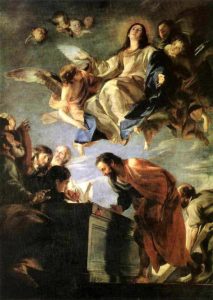 Day 1
Day 1

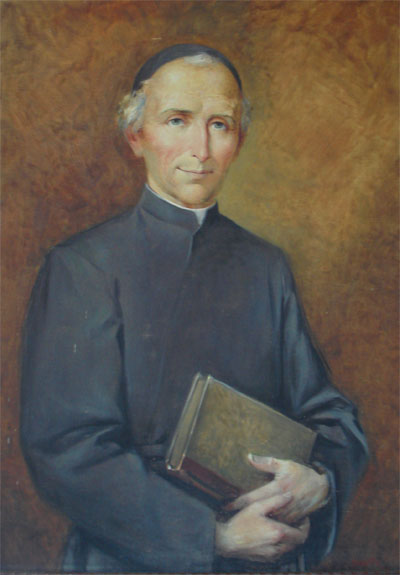
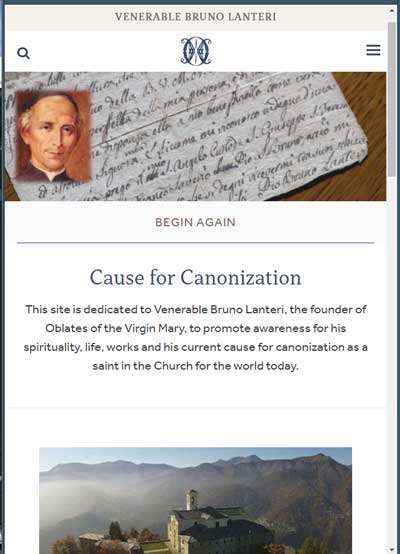
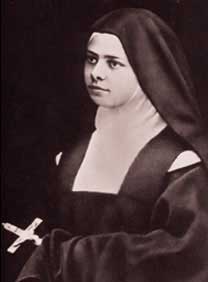

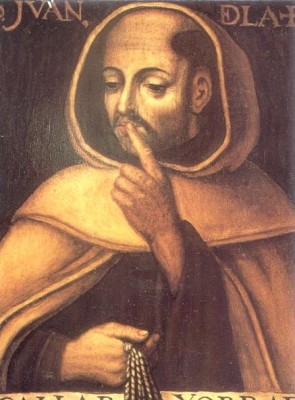
 Msgr. Esseff reflects on our need to reconnect with our source of life. Our Mother can teach us how to pray. Turn to the Blessed Virgin Mary to heard when we are afraid and anxious. She waiting to lead you to her Son. Let her help you discover your Abba. Allow her, as mother, to show you how to receive the Spirit. You are her child. She is the one who waits for you now.
Msgr. Esseff reflects on our need to reconnect with our source of life. Our Mother can teach us how to pray. Turn to the Blessed Virgin Mary to heard when we are afraid and anxious. She waiting to lead you to her Son. Let her help you discover your Abba. Allow her, as mother, to show you how to receive the Spirit. You are her child. She is the one who waits for you now.
